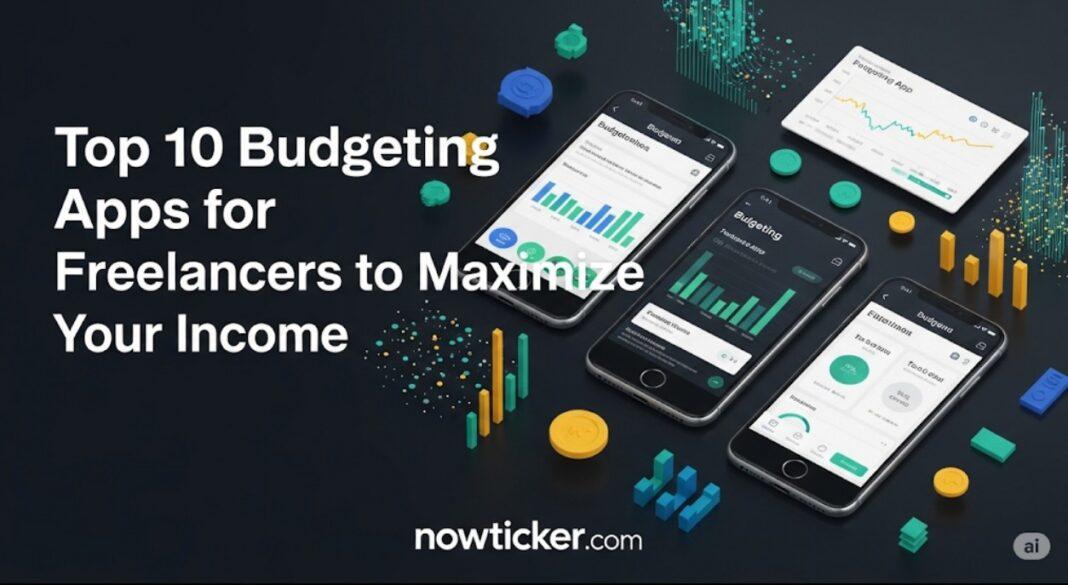Starting and running a small business is exhilarating, but the moment you begin hiring employees, signing leases, or even filing your first trademark, legal questions start popping up like whack-a-mole. Attorneys in the United States often charge $300–$800 per hour, a rate that can torpedo the budget of a bootstrapped startup or mom-and-pop shop. The good news? A new ecosystem of affordable legal services—from AI-driven document builders to nonprofit law clinics—has emerged to keep entrepreneurs compliant without breaking the bank. Below is a practical roadmap to accessing smart, low-cost legal solutions tailored to U.S. small businesses.
Contents
- Understanding Affordable Legal Services for Small Businesses in the USA
- Key Components of Affordable Legal Services
- Benefits and Importance
- Practical Applications
- Frequently Asked Questions
- What is the cheapest way to form an LLC in the USA?
- Can online legal services replace a traditional attorney?
- Are contracts generated by AI or templates enforceable in court?
- How do I find a reputable pro bono clinic near me?
- Is legal expense insurance worth it for a five-employee company?
- What should I watch out for in “free” legal websites?
- How do I verify an attorney’s credentials on a platform like UpCounsel?
- Conclusion
Understanding Affordable Legal Services for Small Businesses in the USA
Affordable legal services encompass any professional legal help that costs noticeably less than traditional BigLaw rates while still preserving quality and enforceability. The spectrum runs from free nonprofit clinics at one end to fixed-fee online platforms at the other. Providers are leveraging technology, alternative fee models, and economies of scale to bring down prices without sacrificing expertise.
Why Traditional Legal Costs Spiral
- Billable hour culture: Every email, revision, or phone call is clocked in six-minute increments.
- Overhead: Marble foyers, downtown rent, and armies of junior associates inflate rates.
- Specialization gaps: Generalist lawyers may spend unbillable time “getting up to speed,” a cost ultimately passed to the client.
The Affordable Paradigm Shift
Cloud-based practice management, AI contract review, and limited-scope representation allow providers to eliminate waste and pass savings on to clients. Think of it as the legal equivalent of TurboTax replacing the CPA who once charged $500 for a 1040EZ.
Key Components of Affordable Legal Services
1. Fixed-Fee & Subscription Models
Instead of dreading the ticking clock, businesses pay a predictable flat rate for routine matters.
- Trademark application: $499–$899 through providers like LegalZoom or Markify.
- LLC formation: Packages starting at $79 plus state fees.
- Unlimited general counsel: Monthly subscriptions of $89–$299 for phone consults and document reviews via companies such as Priori or UpCounsel.
2. Limited-Scope “Unbundled” Services
Hire an attorney for only the slice of work you need—e.g., reviewing a lease, drafting a demand letter, or coaching you before small-claims court—at a fraction of full-representation costs.
3. Legal Technology Platforms
| Platform | Primary Use Case | Typical Cost |
|---|---|---|
| LegalZoom | Entity formation, basic contracts, trademark filing | $79–$799 |
| Rocket Lawyer | On-call attorneys + document automation | $39.99/mo subscription |
| LawDepot | DIY contracts (NDAs, service agreements) | $7.99–$35 per form |
| Clerky | VC-backed Delaware C-corp setup & fundraising docs | $99–$819 per package |
4. Nonprofit & Law-School Clinics
Organizations such as SCORE, Small Business Development Centers (SBDCs), and law-school clinics offer pro bono or low-cost consultations. For example, the NYU Entrepreneurship Clinic provides free IP strategy sessions to qualifying startups.
5. Prepaid Legal Plans & Insurance Riders
Companies like LegalShield sell prepaid plans for small businesses starting around $49 per month. Coverage often includes unlimited phone advice, contract reviews, and debt-collection letters. Business owners insurance carriers (e.g., Hiscox) sometimes offer legal expense insurance riders for an extra $8–$20 per month.
Benefits and Importance
1. Cash-Flow Friendly
Predictable monthly expenses beat surprise $2,000 invoices, letting founders allocate capital to growth instead of emergencies.
2. Risk Mitigation Without Sticker Shock
Early-stage legal hygiene—proper terms of service, employee handbooks, IP assignments—prevents lawsuits that can cost $54,000 on average for small businesses according to the SBA.
3. Democratized Expertise
Affordable services level the playing field so a food-truck owner enjoys similar legal firepower to well-funded competitors.
4. Scalability
Start with a $79 LLC package; upgrade to subscription GC services as you hire your tenth employee; finally retain a boutique firm for M&A—all without ever paying BigLaw rates.
Practical Applications
Scenario 1: Freelance Designer Opening an LLC
- Need: Liability protection, clean client contracts.
- Solution: Use ZenBusiness ($199 + state fee) to form an LLC in 48 hours.
- Add-on: Rocket Lawyer subscription to generate service agreements and NDAs on demand.
- Outcome: Total first-year spend under $500 vs. $1,800+ via a traditional attorney.
Scenario 2: E-commerce Brand Protecting a Logo
- Conduct a free knockout search on USPTO.gov.
- Use Markify’s AI-powered trademark package ($499) to file TEAS Plus application.
- Monitor filings with Trademarkia’s free watch service.
- Total cost: under $600 instead of $1,500–$2,500 via a solo IP attorney.
Scenario 3: Local Café Negotiating a Commercial Lease
Instead of paying a real-estate attorney $400/hour to redline a 30-page lease, the owner:
- Purchases a lease-review package from UpCounsel for $350 (fixed).
- Schedules a 45-minute strategy call to understand key risk clauses (percentage rent, personal guarantee, CAM charges).
- Self-negotiates using bullet-point recommendations.
Scenario 4: SaaS Startup Raising Pre-Seed Capital
| Legal Task | Affordable Path | Traditional Cost | Savings |
|---|---|---|---|
| SAFE Note Drafting | Clerky’s SAFE package ($399) | $3,000 via counsel | $2,601 |
| Board Consent | Template + 30-min review ($250) | $1,200 | $950 |
| 83(b) Elections | IRS form + 15-min consult ($0–$100) | $500 | $400–$500 |
Frequently Asked Questions
What is the cheapest way to form an LLC in the USA?
The absolute cheapest route is a DIY filing directly with your state—fees range from $40 in Kentucky to $500 in Massachusetts. However, you will receive no guidance on operating agreements, EIN, or publication requirements. A balanced compromise is using ZenBusiness, Incfile, or Northwest, which bundle state fees, registered agent, and operating agreement templates for $79–$199. Always verify whether your state imposes additional publication or franchise taxes.
Can online legal services replace a traditional attorney?
They can replace attorneys for routine, low-complexity matters such as basic contracts, entity formation, or trademark filings. When stakes rise—think litigation, regulatory investigations, or high-value M&A—you still need bespoke counsel. Treat online platforms as the “urgent care” of legal health: great for scrapes and checkups, insufficient for major surgery.
Are contracts generated by AI or templates enforceable in court?
Yes, provided they comply with state contract law (offer, acceptance, consideration, mutual assent) and any industry-specific rules. A bigger risk is ambiguous or incomplete clauses that invite disputes. Always have a professional review high-dollar or high-risk contracts even if the first draft is AI-generated.
How do I find a reputable pro bono clinic near me?
- Search the American Bar Association’s pro bono directory at americanbar.org.
- Contact your nearest Small Business Development Center (SBDC)—there are nearly 1,000 nationwide.
- Check local law schools; most have entrepreneurship or community enterprise clinics.
Is legal expense insurance worth it for a five-employee company?
Typically, yes. Premiums hover around $15–$25 per employee per month and can cover contract disputes, employment claims, and debt collection up to $100,000 annually. Given that a single wrongful-termination demand letter can cost $1,500 from an attorney, the insurance often pays for itself with the first incident.
What should I watch out for in “free” legal websites?
- Upsells: Free formation may rope you into $299 annual registered-agent renewals.
- State compliance gaps: Some platforms ignore publication or annual report requirements.
- Privacy red flags: Read the privacy policy to ensure your data isn’t sold to third-party marketers.
How do I verify an attorney’s credentials on a platform like UpCounsel?
- Click on the attorney’s profile to see bar admission state and year.
- Cross-check with the state bar’s online lookup tool.
- Review client ratings and peer endorsements; aim for 4.5+ stars and at least 10 reviews for confidence.
Conclusion
Affordable legal services have moved from “you get what you pay for” to “you get what you need”. By combining technology, alternative fee models, and community resources, small businesses can access enforceable contracts, protect intellectual property, and stay compliant for a fraction of traditional costs. The smart strategy is to start lean—use DIY tools and fixed-fee platforms for formation and routine documents—then layer on professional counsel as your revenue and risk scale. Think of it as building a legal stack: free clinics at the base, flat-fee platforms in the middle, and specialized attorneys at the top. Mastering this stack keeps your startup’s burn rate low while ensuring you’re never caught off guard by a cease-and-desist letter at 3 p.m. on a Friday.



